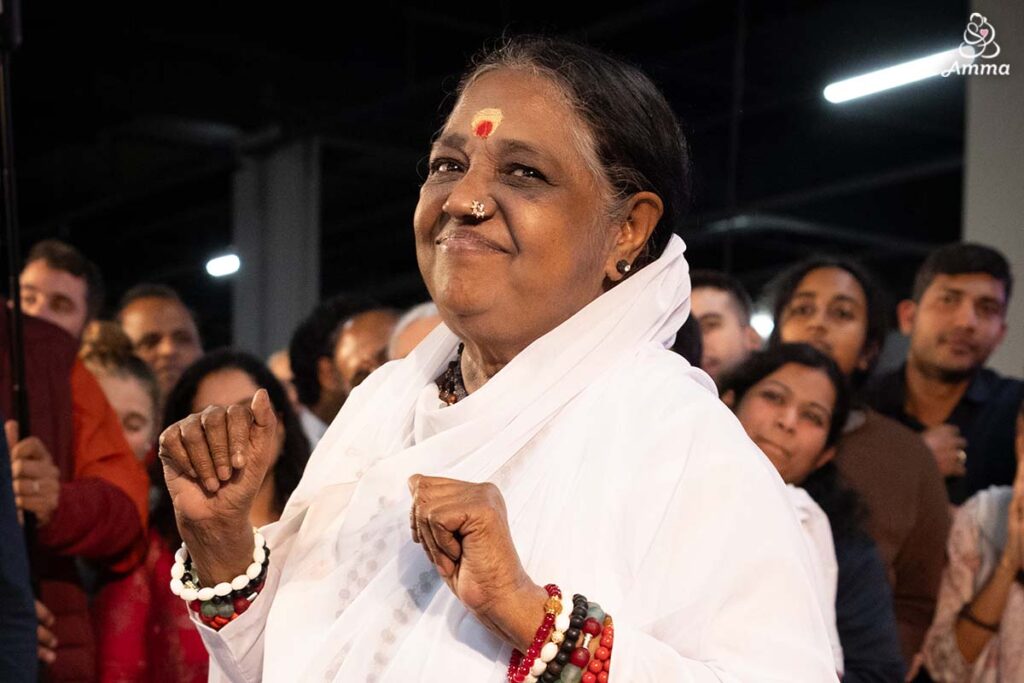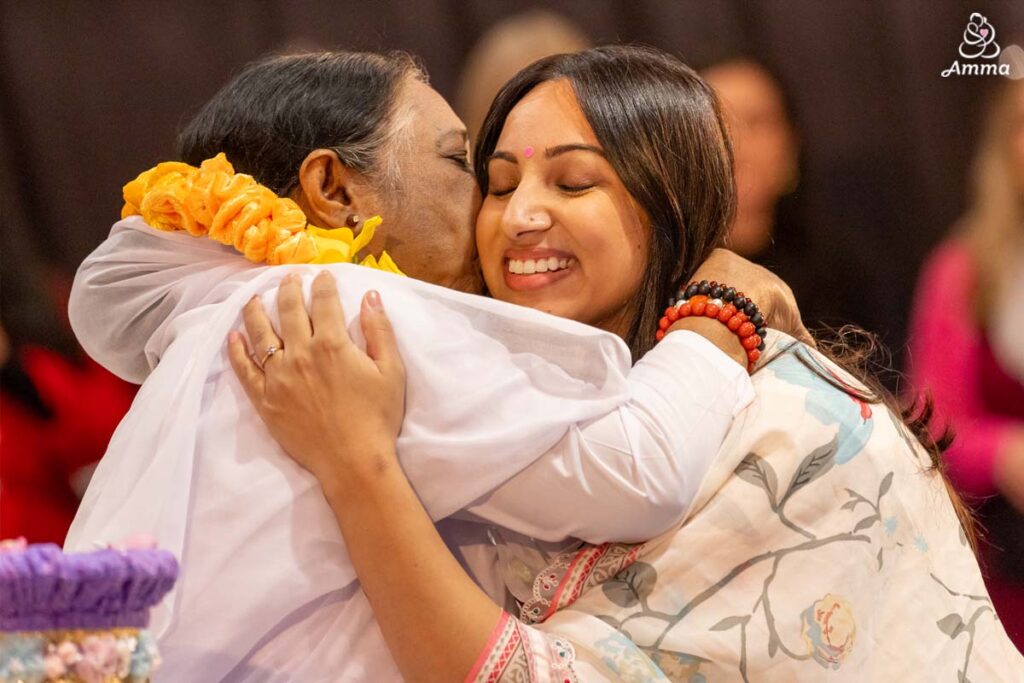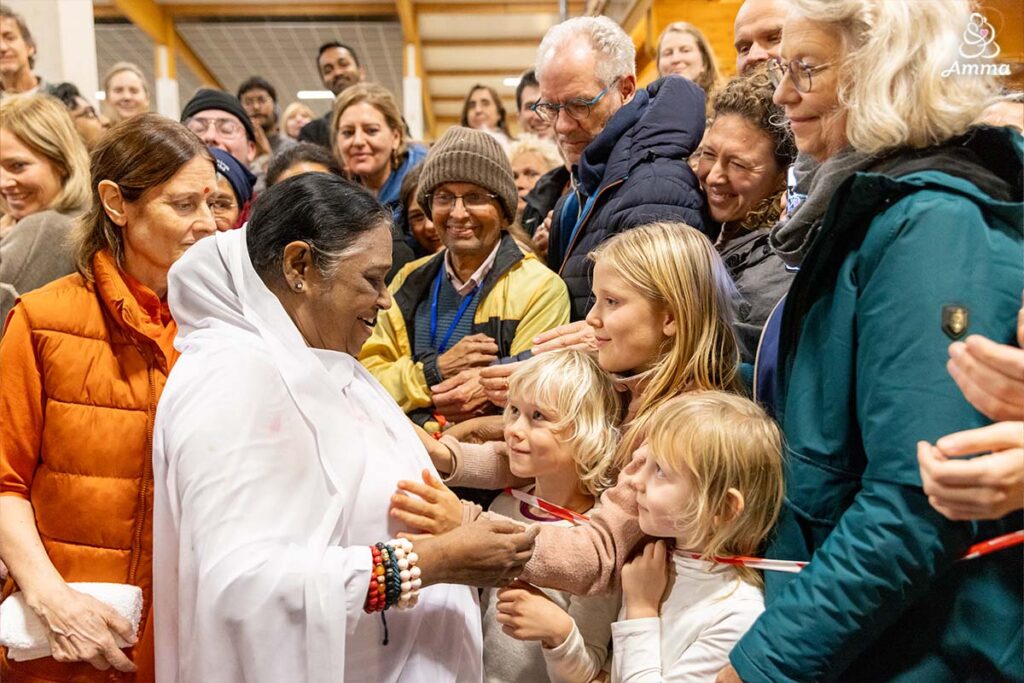What does the act of seeking forgiveness truly mean? Whom do we ask? And who forgives? Swami Amritaswarupananda Puri, Amma’s most Senior Disciple, conducted a spiritual retreat in Indonesia that shed new light upon surrendering to the Guru, learning how to forgive ourselves, and then extending that power to those who need it most.
Devotees from the Asia-Pacific countries gathered at the Island of Batam, inspired to learn from Swamiji’s wisdom. Held April 18 – 20, the event drew around 400 people, including those taking part online.
Swamiji explained how self-forgiveness is synonymous with self-compassion: “Forgiveness and compassion start with oneself. If we cannot forgive ourselves, we cannot forgive others. If we cannot be compassionate towards ourselves, we cannot be compassionate towards others.”
He then continued with a powerful and unforeseen message about what true forgiveness actually is.
“You may forgive me because you love Amma and that love extends towards me also. So that forgiveness is not forgiveness. Forgiving someone worthy of forgiveness is not a great deed. Any fool can do it,” said Swamiji.
“Real forgiveness is when we forgive even the most unworthy. And that’s when God is pleased with us. And showers Her grace on us.”

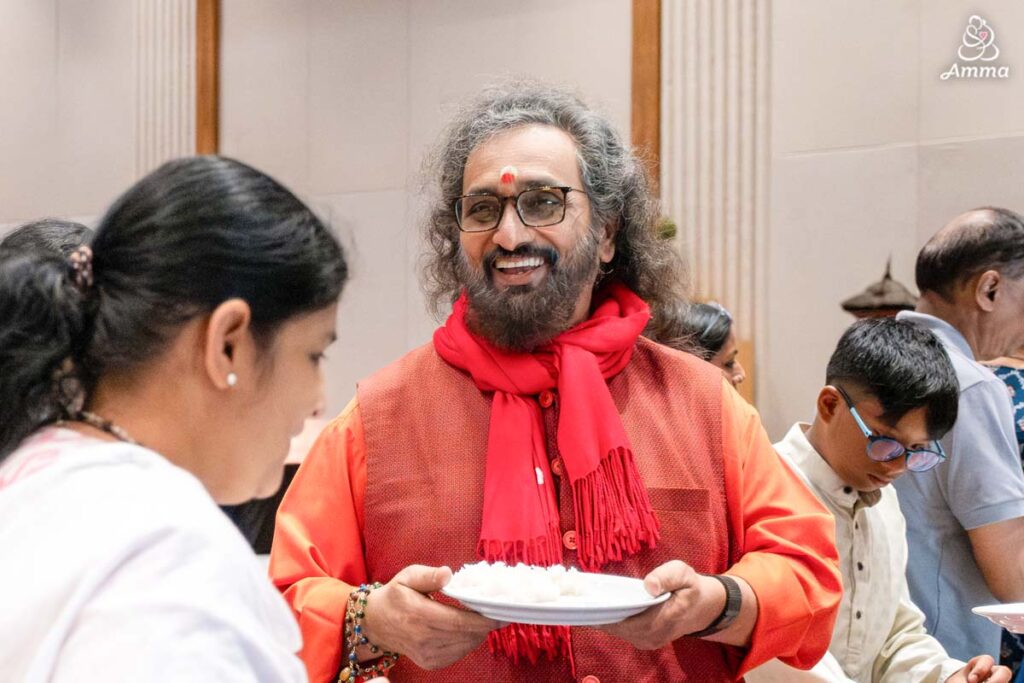
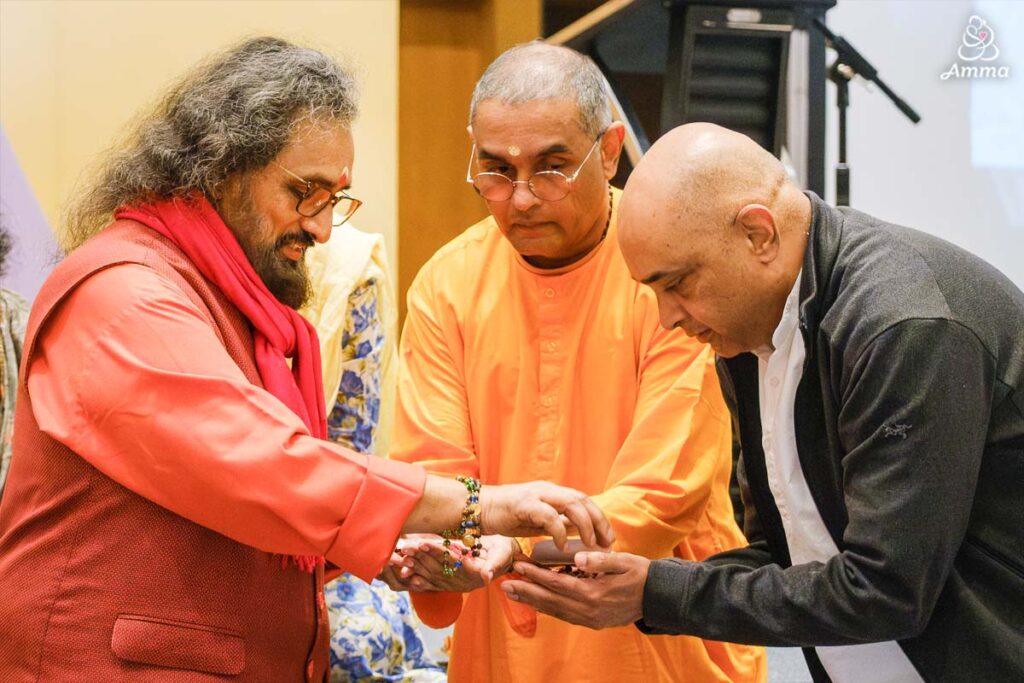

Other highlights were Swamiji’s discourses, question-and-answer sessions, and bhajans. The retreatants were not just from the APAC region, but also included people throughout Europe, the US, South America, and the Middle East.
Swamiji’s talks made references to ‘Śiva Aparādha Kṣamāpaṇa Stōtram,’ a hymn beseeching Lord Śiva, who represents the Guru, for forgiveness. This stōtram was composed by Ādi Śaṅkarācārya, the most well-known proponent of Advaita, the philosophy of non-duality.
Seeking forgiveness implies having erred, and the fundamental mistake, Swamiji said, is forgetting God or losing awareness. This disconnection from the Divine is what leads to sin (aparādha). The antidote to aparādha is ārādha—worshipping God.
A word that occurs frequently in the ‘Śiva Aparādha Kṣamāpaṇa Stōtram’ is kṣantavya, which means ‘to be forgiven.’ Swamiji explained that when we seek forgiveness (kṣamāpaṇa) from the Guru, we are imploring her to give us time and opportunity to repent and atone for our mistakes, and pleading with her not to disregard or stop loving us.
Through real-life examples and incidents, Swamiji explained that we can unburden ourselves of negative emotions such as resentment and guilt only through forgiveness, and this is the way to sanity and peace of mind.

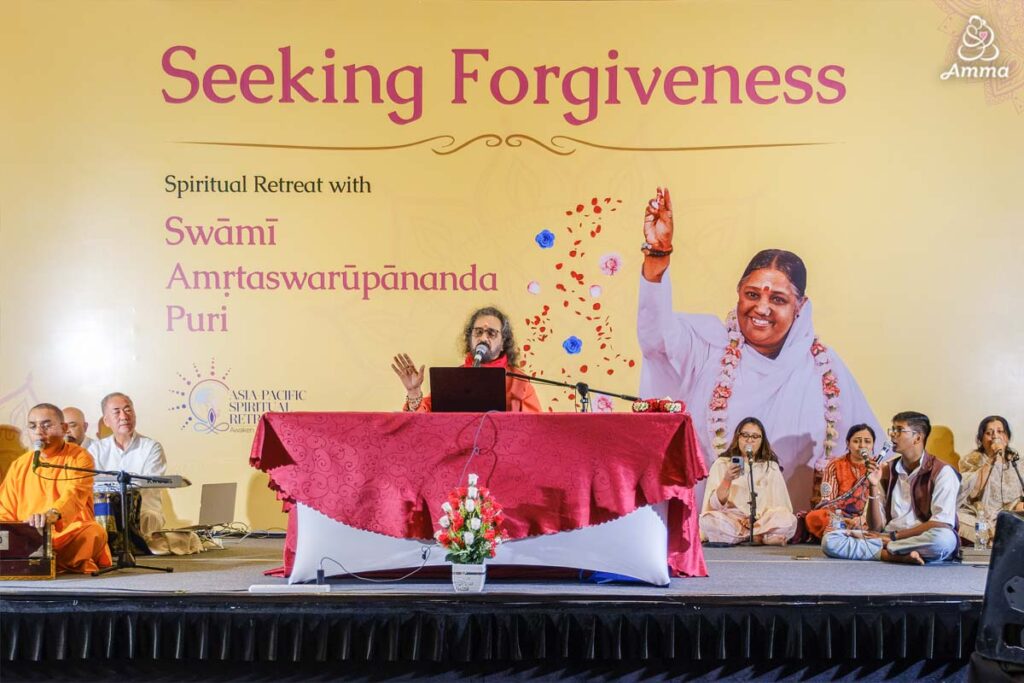

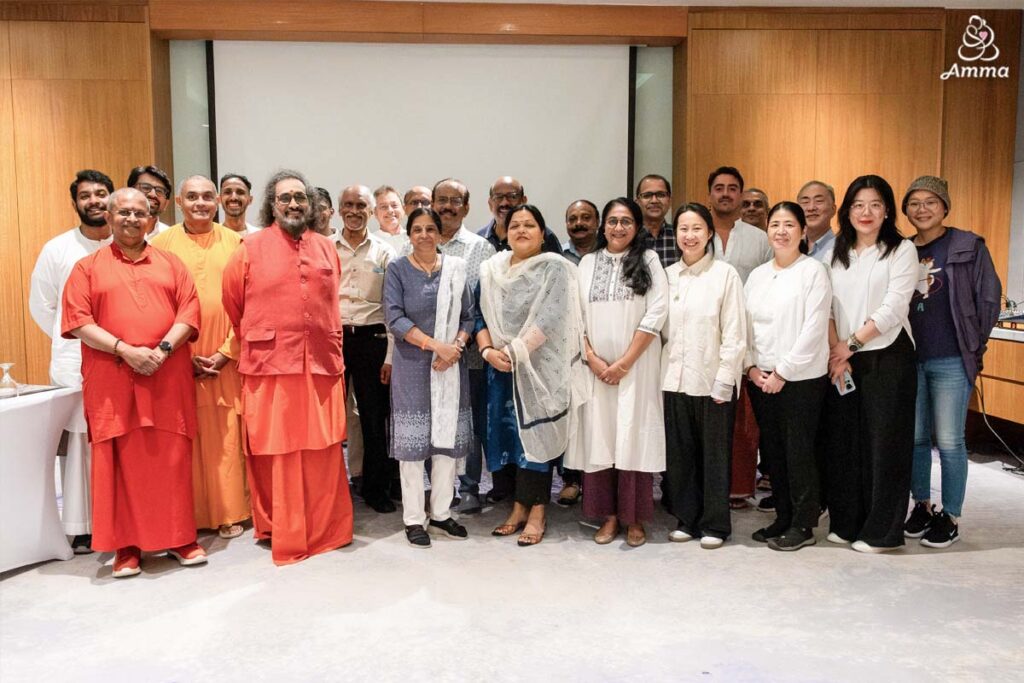
“The greatest power of all is God’s power. This infinite power has provided us with this entire universe, the earth, nature, and all the resources. In short, use this precious human birth wisely—live, think, act and die like a human, not like an animal,” said Swamiji.
Amma made an online appearance on the second evening of the retreat, much to everyone’s delight. She said that most people carry a heavy burden of sorrows and that surrendering that burden to God can relieve us of our misery. Beaming with maternal joy, she said, “Amma is so happy to see all her children coming together for this retreat.”
This was the second APAC Spiritual retreat. The first was held in the last week of March 2024 in Changi Cove, Singapore.



